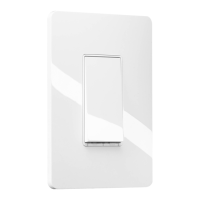GNU
LESSER
GENERAL
PUBLIC
LICENSE
Version 2.1, February 1 999
Copyright
(C)
1991, 1999
Free
Software Foundation, Inc.
51
Franklin Street, Fifth Floor, Boston, MA 02110-1301
USA
Everyone
is
permitted
to
copy and distribute verbatim copies
of
this
license document,
but
changing
it
is
not
allowed.
[This is
the
first released version
of
the
Lesser
GPL.
It also counts
as
the successor
of
the
GNU
Library Public License, version
2,
hence the
version number
2.1.]
Preamble
The licenses for
most
software are designed
to
take away your free-
dom
to
share and change it.
By
contrast, the
GNU
General Public Li-
censes
are
intended
to
guarantee your freedom
to
share and change
free software--to make sure the software
is
free for all its users.
This license, the Lesser General Public License, applies
to
some spe-
cially designated software packages--typically libraries--of
the
Free
Software Foundation and other authors
who
decide
to
use
it.You
can
use
it
too,
but
we suggest you first
think
carefully
about
whether this
license
or
the ordinary General Public License is the better strategy
to
use in any particular
case,
based on the explanations below.
When we speak
of
free software, we are referring
to
freedom
of
use,
not
price. Our General Public Licenses are designed
to
make sure
that
you have
the
freedom
to
distribute copies
of
free software (and
charge for this service
if
you wish);
that
you receive source code
or
can
get
it
if
you
want
it;
that
you can change
the
software and
use
pieces
of
it
in new free programs; and
that
you are informed
that
you
can
do
these things.
To
protect
your
rights, we need
to
make restrictions
that
forbid
distributors
to
deny you these rights
or
to
ask
you
to
surrender these
rights.
These
restrictions translate
to
certain responsibilities for you
if
you distribute copies
of
the
library
or
if
you
modify
it.
For example,
if
you distribute copies
of
the library, whether gratis
or
for a
fee,
you must give
the
recipients all the rights
that
we gave you.
You
must make sure
that
they, too, receive
or
can
get
the source code.
If
you link other code with
the
library, you must provide complete ob-
ject
files
to
the recipients,
so
that
they can relink them
with
the library
after making changes
to
the
library and recompiling it. And you must
show
them
these terms
so
they know their rights.
We
protect your rights
with
a two-step method:
(1)
we copyright the
library, and
(2)
we offer you this license, which gives you legal permis-
sion
to
copy, distribute and/or modify the library.
To
protect each distributor, we want
to
make
it
very clear
that
there
is
no
warranty for the free library. Also,
if
the library is
modified
by
someone else and passed on, the recipients should
know
that
what
they have
is
not
the original version,
so
that
the original author's rep-
utation will
not
be affected by problems
that
might
be introduced by
others.
Finally, software patents pose a constant threat
to
the
existence
of
any free program.
We
wish
to
make sure
that
a company cannot ef-
fectively restrict the
users
of
a free program by obtaining a restrictive
license
from
a
patent
holder. Therefore, we insist
that
any
patent
license obtained for a version
of
the library must be consistent
with
the full freedom
of
use
specified in this license.
Most
GNU
software, including some libraries,
is
covered
by
the
ordi-
nary
GNU
General Public License. This license, the
GNU
Lesser
General
Public License, applies
to
certain designated libraries, and
is
quite
different from the ordinary General Public License.
We
use this license
for certain libraries in order
to
permit linking those libraries
into
non-
free programs.
When a program
is
linked
with
a library, whether statically
or
using a

